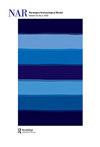非殖民化、土著和种族的文化政治
IF 1.1
3区 历史学
0 ARCHAEOLOGY
引用次数: 0
摘要
我不是考古学家,但我确实了解一些文化政治,以及思想在研究人员和他们所居住的文化之间传播的方式。对我来说,非殖民化对任何研究领域的关键挑战之一是理解这种关系是如何发展的:在我们与两个群体表达、修改和质疑殖民主义持续遗产的方式作斗争时,更好地理解学科专家和广大公众之间的双向意义交流。如果非殖民化要在当前寻求社会正义,那么就有必要超越某个特定领域的界限,追踪它与一系列更广泛的关系的关系,而这些关系几乎没有或根本没有学术管辖权。难怪这是一个困难和令人不安的过程。的确如此。值得称赞的是,埃利奥特和沃伦有足够的信心开拓自己的领域,使其容易受到更广泛的文化背景的影响。在对中石器时代研究的历史形成进行反思性考察时,作者们谈到了他们的领域在殖民知识生产结构中的嵌入性,而没有讲述一个关于因果关系的简化和单向的故事。殖民时代的中石器时代学术被认为反映并塑造了关于西方现代性的目的论、进步主义和普遍性的故事,在这些故事中,种族化的其他人取代了遥远人类过去的世俗其他人。Elliott和Warren在追踪中石器时代考古学与殖民思想和概念框架的持久纠缠时,对他们的领域既有构成又有构成的理解。因此,非殖民化不是一个一次性的认识论清洗时刻,科学事实从非科学价值观中巧妙地解脱出来,而是一个持续的反思和批判过程。非殖民化不是要推卸责任,而是要建立伦理研究实践,将殖民遗产纳入社会正义事业。这一伦理的核心意义是重新配置与土著人民的关系。鉴于人种学类比长期以来在他们的领域中发挥着核心和有问题的作用,Elliott和Warren将中石器时代的知识生产重新视为一个与当代土著社区利益更密切相关的合作过程。虽然土著人民曾经是巩固人类发展种族主义类型的研究对象,但他们作为主体的参与提供了一种方式,可以回顾单向知识提取和中石器时代研究的殖民历史。从概念上讲,本土性继续为西方科学分类逻辑之外产生的知识主张开辟了空间,为培育被征服的本体论或宇宙学开辟了空间本文章由计算机程序翻译,如有差异,请以英文原文为准。
Decolonization, Indigeneity, and the Cultural Politics of Race
I am not an archaeologist, but I do know a bit about cultural politics and the ways in which ideas circulate between researchers and the cultures they inhabit. To me, one of the key challenges of decolonization to any field of research is in understanding how this relationship plays out: to develop a better grasp of the two-way traffic of meaning between disciplinary specialists and the wider public as we contend with the ways in which both constituencies express, modify, and contest the ongoing legacies of colonialism. If decolonization is to involve the pursuit of social justice in the present, then it becomes necessary to move beyond the confines of a particular field to trace the ways it is implicated in a wider set of relations over which it will have little or no scholarly jurisdiction. It is little wonder that this is said to be a difficult and unsettling process. It is. It is to Elliott and Warren’s credit that they have sufficient confidence to open up their field and render it vulnerable to its broader cultural contexts. In their reflexive examination of the historical formation of Mesolithic research, the authors address their field’s embeddedness in the structures of colonial knowledge production without telling a reductive and onedirectional story about causality. Colonial-era Mesolithic scholarship is understood to have both reflected and given shape to teleological, progressivist, and universal stories about Western modernity where racialized others came to stand in for the temporal others of the distant human past. As they trace Mesolithic archaeology’s enduring entanglement with colonial ideas and conceptual frameworks, Elliott and Warren retain an understanding of their field as both constituted and constituting. Decolonization is not, therefore, a one-off moment of epistemological cleansing whereby scientific facts are neatly extricated from non-scientific values, but instead a continuous process of reflection and critique. Decolonizing is not about apportioning blame but about establishing ethical research practices that engage the colonial legacy in the cause of social justice. Of central significance to this ethics is a reconfigured relationship to Indigenous peoples. Given the central and problematic role that ethnographic analogy has long played in their field, Elliott and Warren reconceive of Mesolithic knowledge production as a collaborative process more closely engaged with the interests of contemporary Indigenous communities. While once Indigenous peoples served as the objects of research that consolidated racist typologies of human development, their involvement as subjects provides a way of speaking back to monodirectional knowledge extraction and to the colonial history of Mesolithic research. Conceptually, indigeneity continues to open up a space for knowledge claims generated outside of the categorizing logics of Western science, for fostering ontologies or cosmologies that were subjugated and
求助全文
通过发布文献求助,成功后即可免费获取论文全文。
去求助
来源期刊

Norwegian Archaeological Review
ARCHAEOLOGY-
CiteScore
2.10
自引率
0.00%
发文量
13
期刊介绍:
Norwegian Archaeological Review published since 1968, aims to be an interface between archaeological research in the Nordic countries and global archaeological trends, a meeting ground for current discussion of theoretical and methodical problems on an international scientific level. The main focus is on the European area, but discussions based upon results from other parts of the world are also welcomed. The comments of specialists, along with the author"s reply, are given as an addendum to selected articles. The Journal is also receptive to uninvited opinions and comments on a wider scope of archaeological themes, e.g. articles in Norwegian Archaeological Review or other journals, monographies, conferences.
 求助内容:
求助内容: 应助结果提醒方式:
应助结果提醒方式:


